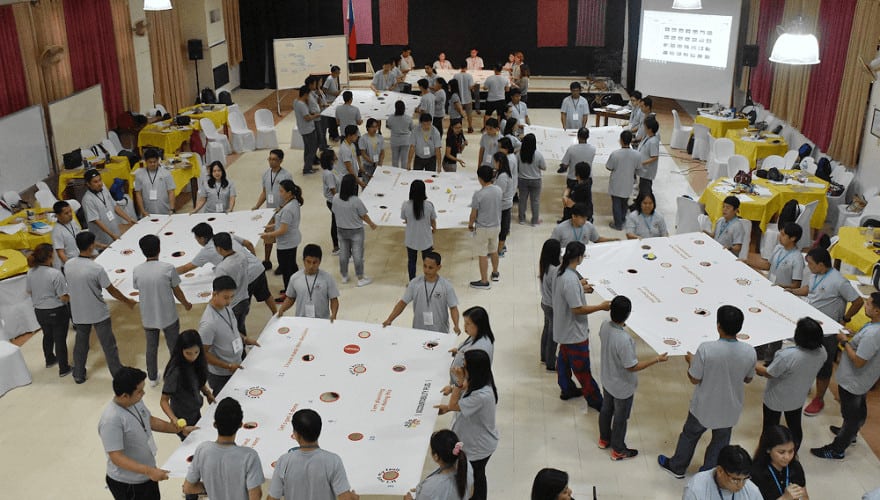I still remember the first time I stayed at a small resort in Palawan. After a long day of travel, I was exhausted. Before I could even ask, one of the staff quietly handed me a cup of ginger tea and said, “Sir, para sa pagod.” No script. No upsell. Just genuine care.
That moment stayed with me. And I’ve seen it repeated in different forms across the Philippines — a hotel front desk clerk remembering your name, a restaurant server anticipating what you might need, a bank teller going the extra mile to make sure you’re comfortable.
This is what I call the Filipino edge in service. It’s not just customer care. It’s malasakit — the instinct to treat customers like family.
As someone who has spent years teaching organizations how to design customer experiences and build service leaders, I can tell you: this is more than “being nice.” Filipino hospitality can be a brand. A differentiator. A cultural superpower that turns one-time guests into lifelong advocates.
The challenge is not whether Filipinos are naturally hospitable — we are. The challenge is how companies can nurture, protect, and scale this gift so it becomes part of their culture, not just the smile of one employee.
Why Hospitality Matters for Business
Today, products and prices can be copied in an instant. What cannot be copied easily is how you make people feel. That’s why customer experience has become the real battleground for loyalty.
In my years working with hotels, banks, schools, and even government agencies, I’ve seen the same truth: when organizations deliver service with warmth, customers come back — not just because of efficiency, but because of connection. People may forget the details of a transaction, but they never forget how you made them feel.
This is where Filipino hospitality stands out. Around the world, companies spend millions training staff to deliver “personalized service.” For Filipinos, that instinct is already part of our cultural DNA. We call it malasakit — the natural tendency to care for others as if they were family.
When organizations embrace this, hospitality becomes more than a trait. It becomes a brand. Resorts that live by this principle attract not just tourists but evangelists who tell the story of their stay. BPO companies that embed it into their culture win contracts not just for cost efficiency but for warmth in every interaction. Even schools and hospitals can build reputations not only for competence, but for compassion.
Filipino hospitality, when intentionally nurtured, can be the single most powerful differentiator in a crowded global marketplace.
Bayanihan Culture at Work
We often think of bayanihan as that old image of villagers lifting a bahay kubo on their shoulders. But inside organizations, bayanihan can look like something else: colleagues lifting each other up so no one gets left behind.
I’ve seen this in companies that thrive. Teams where peer mentorship happens naturally. Senior employees don’t hoard knowledge; they pass it on. New hires aren’t left to sink or swim; they’re guided, supported, and encouraged. That’s bayanihan at work.
Some organizations even formalize it. They create Bayanihan Days, where employees step out of their roles to collaborate on community projects — building homes, cleaning schools, or running donation drives. What’s fascinating is that when employees practice bayanihan outside, they carry that spirit back inside. The workplace becomes more than just a job; it becomes a community.
There’s also damayan — sympathy in action. I once visited a company that had set up an employee support fund. When a team member faced a family emergency, colleagues contributed without hesitation. No one asked for anything in return. That sense of solidarity created trust and loyalty that no incentive scheme could buy.
For HR leaders and managers, the lesson is clear: when you embed bayanihan into your culture, you don’t just build better teams. You build teams that care. And when employees experience that kind of care, it naturally spills over to customers.
Malasakit in Customer Service
If there’s one word that captures the Filipino approach to customer service, it’s malasakit. It means going beyond duty, not because you have to, but because you genuinely care.
I’ve seen this in resorts, banks, and even government offices. A hotel attendant who notices a guest looks tired and quietly offers tea. A bank officer who stays a few minutes past closing to help an elderly client. A call center agent who doesn’t just resolve a problem but reassures a frustrated customer with empathy.
These are not isolated stories. They reveal a deeper instinct: to treat customers as kapamilya. In my workshops, I tell service leaders that this is the true edge of Filipino hospitality. Scripts can sound robotic. Systems can feel cold. But malasakit makes service unforgettable.
The Department of Tourism recognized this when it launched the Filipino Brand of Service Excellence program, designed to standardize training while keeping it rooted in cultural values. At its core is not efficiency but humanity — the reminder that every customer interaction is a chance to show pakikipagkapwa-tao (shared humanity).
For leaders, the challenge is to protect this instinct. Too many companies pressure staff to hit quotas, recite scripts, or follow rigid protocols. But when hospitality is reduced to compliance, it loses its heart. Malasakit thrives when employees are trusted, empowered, and encouraged to care like family.
And when organizations allow that? Guests don’t just feel satisfied. They feel they belong.
Kwentuhan in Employee Bonding
In many Filipino workplaces, the most meaningful connections don’t happen in boardrooms. They happen during kwentuhan — those casual conversations over coffee, in the pantry, or on the ride home.
To an outsider, it may look like small talk. But for Filipinos, kwentuhan is how we build trust. It’s how we check in on each other, lighten stress, and share lessons. In fact, I often tell leaders that kwentuhan is the invisible glue of Filipino teams.
Some progressive companies have recognized this and built it into their culture. They create story circles during team meetings, where employees share personal wins, challenges, or even funny experiences. Others hold “open mic” breaks where people swap stories, sing, or simply laugh together.
The result? Employees feel seen and heard not just as workers, but as people. And when staff feel that level of connection, collaboration improves, conflicts decrease, and morale stays high.
For HR leaders and managers, the message is simple: don’t underestimate kwentuhan. If you create space for it, you’re not wasting time. You’re investing in stronger bonds. And those bonds translate directly into better teamwork — and ultimately, better service to customers.
The Critical Balance
Of course, celebrating Filipino hospitality doesn’t mean romanticizing it. Leaders who want to build a brand on hospitality must recognize its nuances.
First, avoid overgeneralization. Not every Filipino is automatically hospitable. While many of us grew up in cultures of sharing and pakikipagkapwa, organizations can’t simply assume it will show up at work. It must be nurtured, modeled, and reinforced.
Second, confront the colonial shadow. Some critics point out that our hospitality has roots in servitude — centuries of conditioning to serve foreign masters. I’ve seen this in service industries where employees are treated as if their only role is to please, not to take pride in their craft. That mindset can lead to subservience instead of empowerment.
This is where leadership makes the difference. Hospitality should not be about bowing down. It should be about lifting up. It should empower employees to take ownership of the customer experience, not reduce them to scripted performers.
Finally, balance tradition with modernization. Warmth and empathy are priceless, but they must be paired with efficiency. A smile won’t make up for a slow system. A warm greeting won’t erase a clunky process. Technology should enhance — not replace — the human connection.
The Filipino edge lies in this balance: world-class systems delivered with world-class heart.
Practical Steps for Leaders
It’s one thing to admire Filipino hospitality. It’s another to design it into the DNA of your organization. Here are some practical steps leaders can take:
1. Train for Values, Not Just Scripts
Don’t reduce hospitality to memorized lines. Teach employees the deeper values — malasakit, bayanihan, pakikipagkapwa-tao. When people understand the “why,” their service becomes sincere, not mechanical.
2. Celebrate Shared Practices
Encourage food-sharing, birthday traditions, and even fiestas in the workplace. These are not distractions; they are culture-builders. A team that bonds over pancit will collaborate better on projects.
3. Recognize Genuine Care
Move beyond KPIs that only track speed or sales. Reward acts of malasakit — the employee who stayed late to help a customer, the colleague who quietly supported a teammate. Recognition sends a message: we value care as much as competence.
4. Model Hospitality from the Top
Leaders set the tone. When managers listen deeply, respect employees, and show kindness, staff mirror that behavior with customers. Leadership is the first act of service.
5. Blend Warmth with Technology
Use systems to make processes smoother, but never let technology replace empathy. A chatbot can answer questions, but only a person can make someone feel they belong.
When these practices are woven into daily routines, hospitality becomes more than an individual trait. It becomes a brand — one that customers feel in every interaction.
The Filipino Edge
In business, almost everything can be copied. Products, prices, even technology. But there’s one thing that competitors will always struggle to duplicate: how you make people feel.
That is the Filipino edge.
When organizations embrace hospitality not as a tagline but as a lived culture, they unlock something powerful. Customers don’t just remember the service. They remember the care. They don’t just feel satisfied. They feel they belong.
As someone who teaches customer experience design and service leadership, I’ve seen this truth play out again and again. The companies that stand out are not the ones with the flashiest marketing or the fastest systems. They are the ones that lead with heart — and in the Philippines, that heart has a name: malasakit.
If we nurture this instinct, protect it from being reduced to scripts, and pair it with world-class systems, Filipino hospitality can become more than a cultural trait. It can become a brand of excellence recognized around the world.
Because at the end of the day, hospitality is not just about serving guests. It’s about creating belonging. And that is the one experience people never forget.
If you want Filipino values to show up as real behavior at work…
Let’s turn it into a culture shift experience.
→ Shift Experiences




